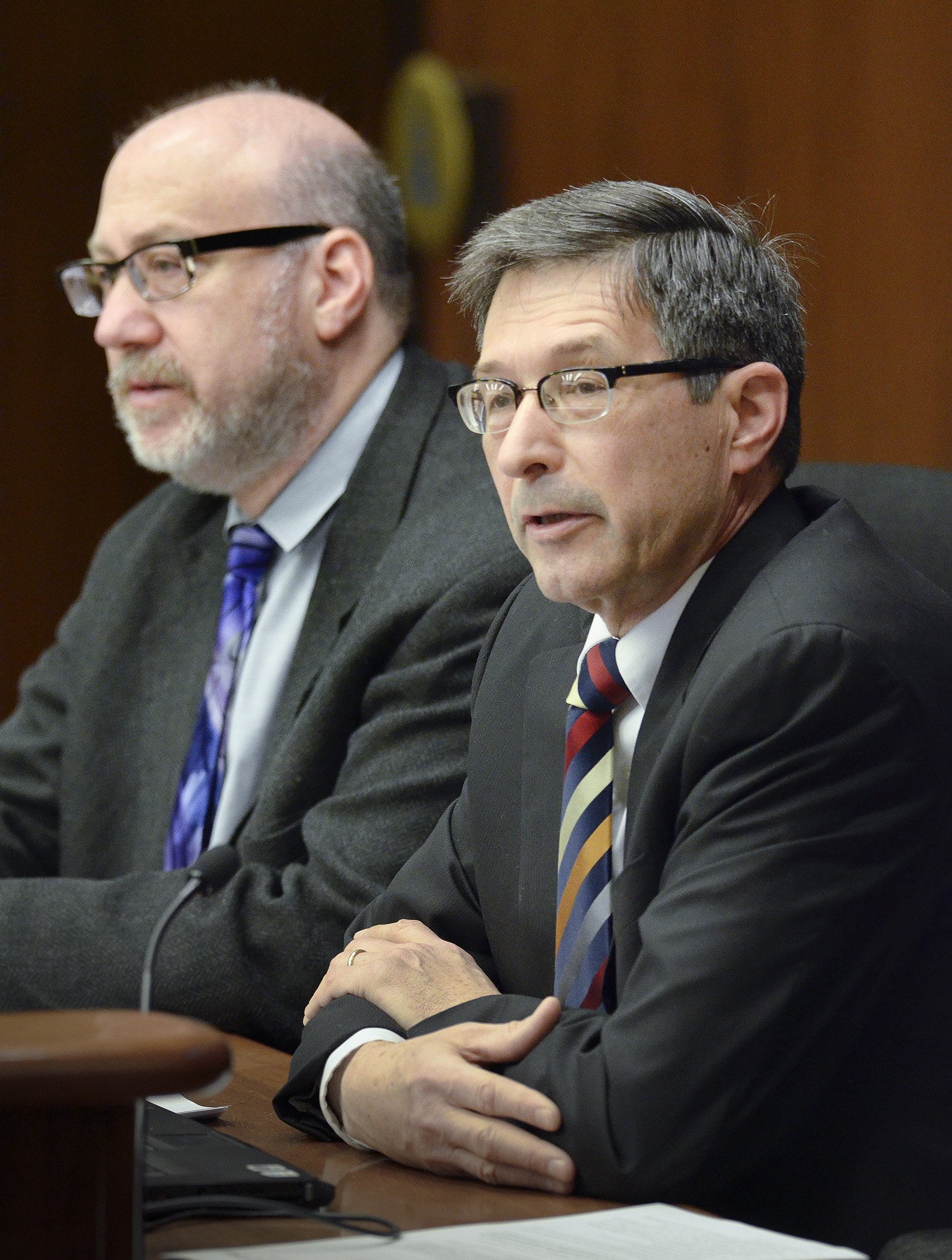Setting goals for organic growth in Twin Cities recycling
Although recycling became widely adopted in households throughout the country decades ago, there’s concern that the amount of waste Minnesotans are recycling has reached a plateau.
“The data about recycling says we’ve remained pretty flat over the last 20 years. So we really need to increase and improve our performance on this,” said Rep. Frank Hornstein (DFL-Mpls).
Hornstein sponsors HF2564, which would increase recycling goals in the Twin Cities and provide local governments with more money for recycling programs.
The proposal would increase the goal for recycling in metro counties from 50 percent to 75 percent by 2030. The bill also would create goals for recycling in commercial buildings and sports facilities.
Hornstein said he hopes to create heaps of new recycling opportunities by trying to expand curbside pickup of organics like food scraps. He said his south Minneapolis neighborhood has started organics recycling in which the waste is picked up and taken to a facility in Rosemount and turned into compost that’s used in agriculture and transportation projects throughout the state.
 Carl Michaud, director of environmental services for Hennepin County, right, testifies in support of a bill sponsored by Rep. Frank Hornstein, left, that would establish a statewide solid waste source reduction goal. Photo by Andrew VonBank.
Carl Michaud, director of environmental services for Hennepin County, right, testifies in support of a bill sponsored by Rep. Frank Hornstein, left, that would establish a statewide solid waste source reduction goal. Photo by Andrew VonBank.“I believe this organics composting is almost like recycling was in the early ‘70s,” Hornstein said. “There was huge public interest and public acceptance. The environmental and economic benefits were very, very clear to people. …Now we’re looking at the potential to really move composting forward in the same way we moved recycling forward in the ‘70s.”
The bill was approved Wednesday by the House Environment Policy Committee. It was given an informational hearing Thursday morning by the House Environment, Natural Resources and Agriculture Finance Committee in advance of receiving the bill for action later in the day.
The bill would provide increased grant funding to county recycling programs from the existing tax on trash hauling and disposal services. The tax generated roughly $70 million in 2013, but 30 percent of it is deposited in the General Fund. Recycling advocates want the General Fund money, which amounts to $22 million a year, redirected to the Environmental Fund at the Pollution Control Agency. That would augment the $14 million a year that PCA’s SCORE program currently provides counties to meet recycling goals.
Carl Michaud, director of environmental services for Hennepin County, said increased SCORE funding would help expand the number of cities and schools in his county that are recycling organics. “I hope you consider diverting as much of the funding … that’s going to the General Fund now back to the counties to implement our recycling and help us grow some of the organic recycling programs,” Michaud said
Rep. Jean Wagenius (DFL-Mpls), the chair of the committee, noted that $22 million is more than the committee’s budget target will allow, so the bill’s funding will need to be adjusted.
A companion, SF2384, sponsored by Sen. John Marty (DFL-Roseville), awaits action by the Senate Finance Committee.
Related Articles
Search Session Daily
Advanced Search OptionsPriority Dailies
Ways and Means Committee OKs proposed $512 million supplemental budget on party-line vote
By Mike Cook Meeting more needs or fiscal irresponsibility is one way to sum up the differences among the two parties on a supplemental spending package a year after a $72 billion state budg...
Meeting more needs or fiscal irresponsibility is one way to sum up the differences among the two parties on a supplemental spending package a year after a $72 billion state budg...
Minnesota’s projected budget surplus balloons to $3.7 billion, but fiscal pressure still looms
By Rob Hubbard Just as Minnesota has experienced a warmer winter than usual, so has the state’s budget outlook warmed over the past few months.
On Thursday, Minnesota Management and Budget...
Just as Minnesota has experienced a warmer winter than usual, so has the state’s budget outlook warmed over the past few months.
On Thursday, Minnesota Management and Budget...